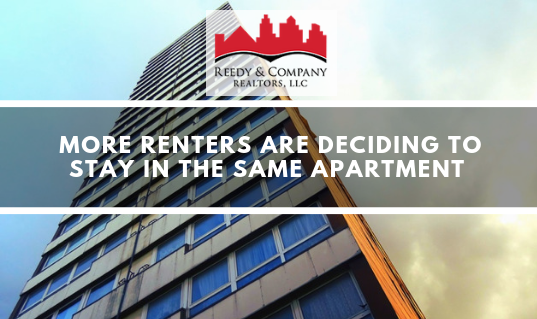According to a recent report, more than 52% of renters prefer to renew their lease when the current term is up, rather than moving on to a new residence. In 2017, the previous high, more than 51% of renters chose to stay in their current locations, rather than moving on to a new property. The trend of renters staying in their current apartment seems to be rising–and with good reason.
Why Renters Choose to Stay
There are plenty of reasons why renters choose to stay, even when rent increases and it may be difficult for them to decide whether it’s worth staying in their current location. Consider:
The cost of moving is high
From hiring a moving truck to putting down deposits on a new property and the conveniences associated with it, moving gets expensive fast! Many renters prefer staying in the same location, even with rental increases, to attempting to pack up and move.
Moving is inconvenient
Not only is it expensive, moving brings with it a number of inconveniences: the need to pack, unpack, and redecorate a new apartment. Not only that, families may need to find properties that will accommodate them: enough bedrooms for the kids, an apartment that will allow their pet, and more.
Staying means they know the rules
They know how long it’s going to take maintenance to come out, whether they can expect to hear loud parties in the middle of the night, and who to call with a problem. Renters know their neighbors, the neighborhood, and the local conveniences. As a result, they may be more likely to stay with what’s comfortable, even if there are difficulties with the current property.
What Does It Mean for Landlords?
As a landlord, the trend of renters choosing to renew their lease has a number of advantages. It also means, however, that there are some things you’ll need to take into account as you consider your rental properties.
Your properties will remain rented
You can count on keeping a larger percentage of your apartments rented out. When current renters choose to renew, you don’t have to deal with the hassle of hunting down new tenants.
Your expenses will remain lower
You won’t have to pay to have the apartments cleaned or to replace or repair any items that were damaged during your last tenants’ stay. You may also find that tenants who intend to stay long-term take better care of the property than tenants who plan to leave as soon as their lease is up.
You can afford to raise the rent
Rent increases are a careful balance. You want to be able to increase your income, especially if you have increased expenses associated with your rental property, but you also don’t want to scare off tenants with prices that are too high. When tenants choose to stay, you’re more likely to get away with small rent increases annually.
If your tenants are leaving in droves, you need to look at why. While some variation in the number of tenants who choose to renew their lease is normal, if your retention numbers are significantly lower than the average, you may need to evaluate why. Is your rent too high? Are you failing to offer things that tenants expect? Is the property in poor repair? Take a look at any potential problems with the property so that you can increase tenant retention.
Tenant retention continues to increase, making this a great time to invest in rental property. Are you ready to take the plunge? Contact Reedy & Company today if you’re interested in investing in properties or want to learn more about tenant retention and how it can impact you as a landlord.



